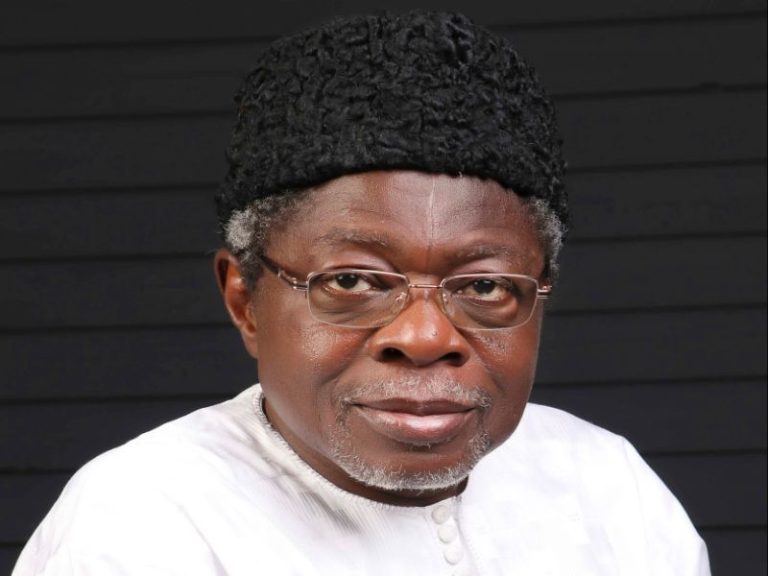In the first part of this write-up, we saw how in 1983, the National Party of Nigeria (NPN), afraid of defeat, capitalised on Shehu Shagari’s perceived likeability and reversed the election timetable and started with a vote for the president.
They relied on what they christened the “bandwagon effect” to commit monumental electoral fraud to win, calling it a “landslide” victory, which opponents and critics derisively described as a “moonslide”.
We also saw how in 2003, the same fear of losing, the threat from General Muhammadu Buhari’s foray into the presidential race, an altercation with his deputy, Atiku Abubakar, and knowing how weary his party and governors were of his dictatorial tendencies, made Obasanjo reverse the election timetable to start with his. Filled with paranoia, he assumed that he would be sacrificed once others won their elections, and so he engineered the reversal of the order of the elections.
Obasanjo calculated that the governors and the party structure would of necessity fight for him to win because his defeat would also signpost theirs. And they knew him well enough: if they allowed him to lose the election, he would make sure every one of them would lose theirs. The National Assembly easily became accomplices because the arrangement also favoured their political survival. Plus, he had introduced the politics of “Ghana-Must-Go.”
We also saw and were impressed with the way they dispensed with election petitions within a month. We read how an election was held in August and the petition hearing started in the first week of September at a special tribunal that gave judgement within a week. The appeal to the Supreme Court was decided on the 26 of the same month and the swearing-in of the president took place on October 1. Judgement in the petition by Chief Olu Falae against the election of General Olusegun Obasanjo in 1999 was also delivered within a month.
Starting the elections with that of the president was reversed in 2003 by Obasanjo. But another aberration that got accepted was the prolonged election petitions that, in some instances, went beyond a year.
Apart from further dividing the voters for and against the litigants, election petitions invariably freeze government activities and put voters in limbo while they await the verdict. Struggling for legitimacy at the courts makes the respondents lame-duck.
Apart from the voters and process of governance that are affected, election petitions ought to be done with before inauguration, otherwise, the process will be unfair to three sets of people: the petitioner fighting an incumbent who has a lot of resources at his disposal; the judge who will adjudicate in a matter concerning he who appoints him and the incumbent who, based on human instinct for self-preservation, will use the powers inherent in the office to trample over the system and win.
But perhaps the urge to go to court may be whittled down if the electoral commission is truly independent, not just in name. Therefore, the way its management team is appointed and how it can be unbundled should thoroughly be considered.
Having said all this, there are still those who hold the opinion that the presidential system may not be the best for us. The parliamentary system, to them, is cheaper with little room for contentions. Also, it demands greater accountability from those in office.
There is also a school of thought that believes the high financial return in politics – by fair or foul means – is what makes some politicians consider winning elections a do-or-die affair. To this school of thought, our politics and governance need to be demonetised and the winner-takes-all syndrome jettisoned.
Beginning with the last, they opine that the money spent on maintaining political officeholders is too much and pulling the nation into penury. They, however, contend that that may not be the case if we look inwards and get to be level-headed.
A ready example is how each senator – Nigeria has 109 of them – will be bought a vehicle worth ₦160 million. Worse is that the vehicles are foreign-made, causing capital flight. Buying foreign cars instead of locally assembled ones should no longer be acceptable for those holding public office. If we prefer foreign brands, why don’t they come here and set up assembly plants?
Legislative work could be made a part-time job attracting sitting allowances, and all political office holders must have Nigeria’s interest uppermost in their minds.
For instance, those who have their children in private schools should not determine the affairs of public schools. How can one be in charge of education but send his wards to private schools or abroad?
Anybody who will administer education must have faith in what the government is doing to improve the sector which he superintends. They should not permit anybody who cannot sacrifice for the state to gain from the state. However, no harm if they want to eat their cakes and have it, but as public officers, they should be made to contribute a certain amount to an endowment fund at the level of their office (a local government officer to the local government, state officer to the state and a federal officer to the federal government).
Such a policy should apply to the health sector as well. None of the leaders, together with their family members, should travel abroad for medical reasons, or patronise private hospitals, except in cases of exigency as determined by a competent medical team.
Perhaps with these in place and free money no longer an attraction to public office, coupled with patriotism from political officeholders, electoral officers and judges, maybe, just maybe, court cases relating to elections may cease.
Gimba is the Publisher and Editor-in-Chief of Neptune Prime.


